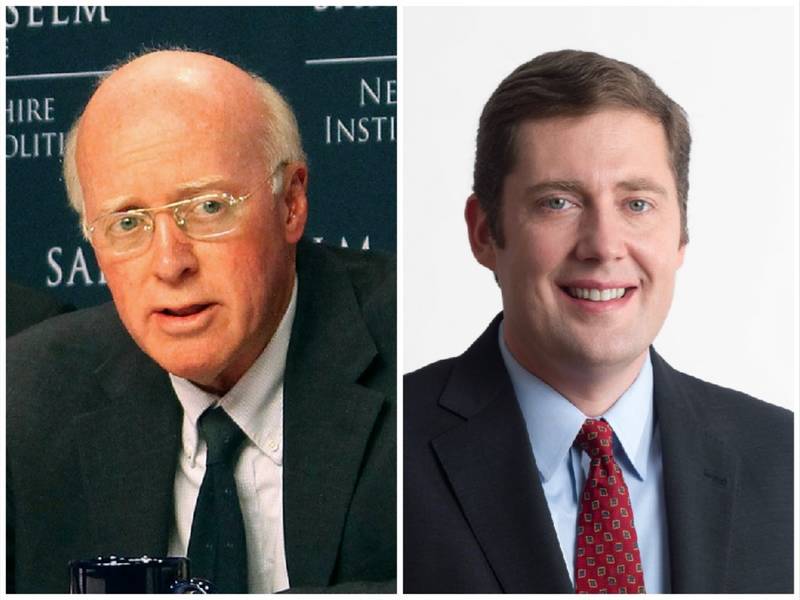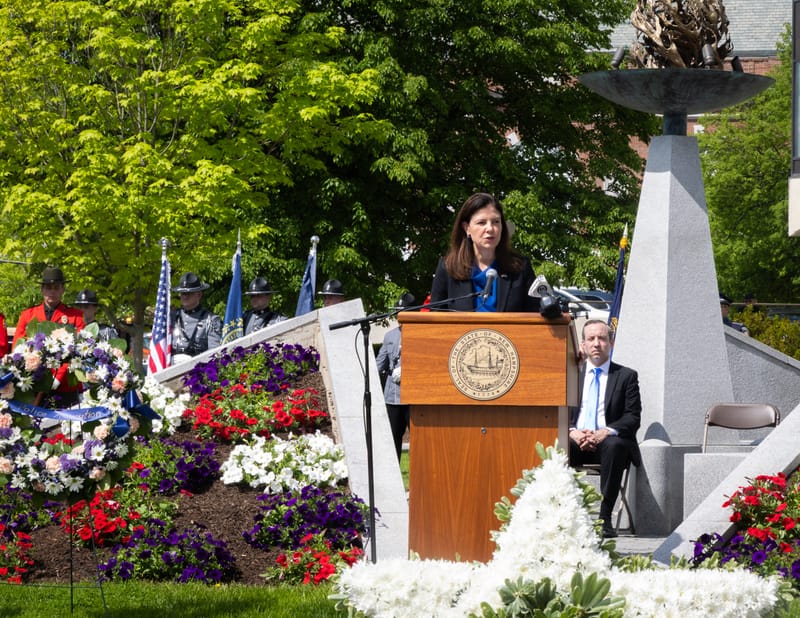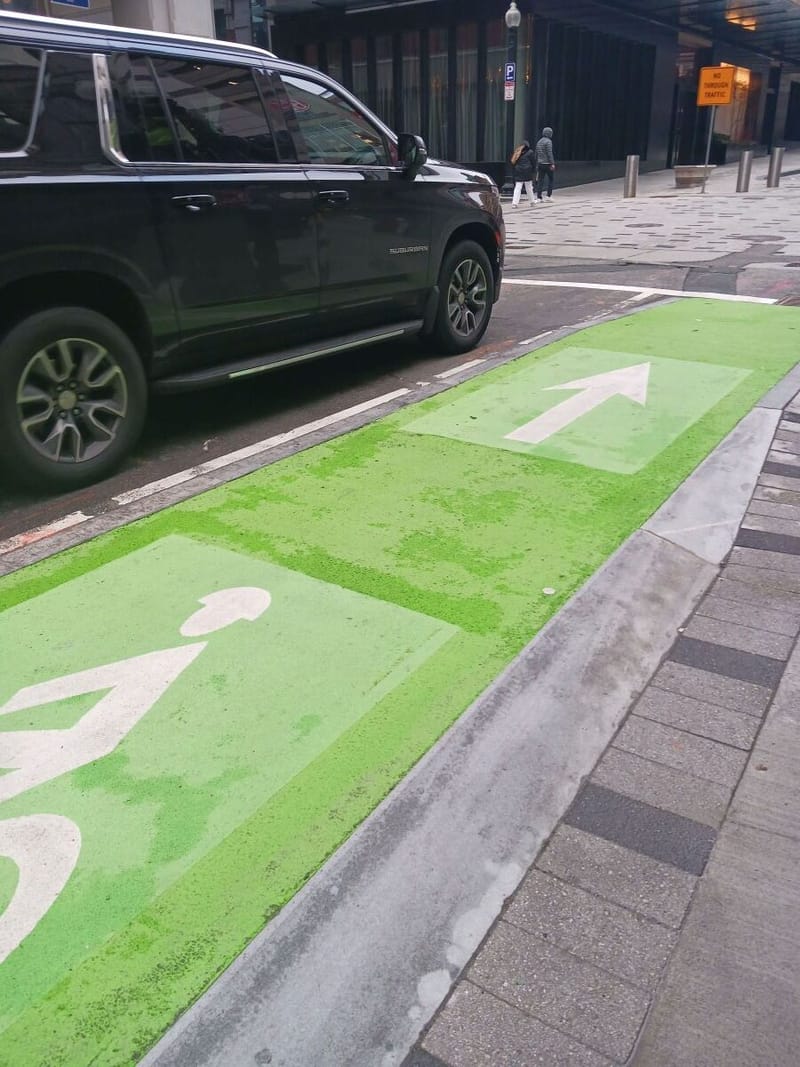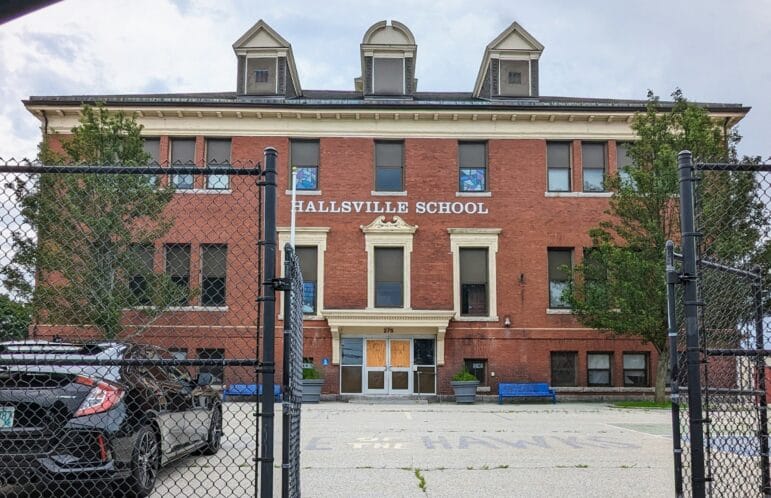Van Ostern proposes sweeping changes to Secretary of State office
With the “blue wave” having won a majority in both the New Hampshire House and Senate for Democrats, they are likely to elect Colin Van Ostern of Concord as the new Secretary of State (SoS) on December 5 (“Organization Day,” which is the first Wednesday in December after the election). If all 424 la

With the “blue wave” having won a majority in both the New Hampshire House and Senate for Democrats, they are likely to elect Colin Van Ostern of Concord as the new Secretary of State (SoS) on December 5 (“Organization Day,” which is the first Wednesday in December after the election). If all 424 lawmakers show up, it will take 213 votes to win the SoS election.
In a November 15 straw vote, the Democratic Party House majority caucus voted 179 for Van Ostern, 23 for incumbent Bill (William) Gardner, and 7 for Peter Sullivan of Manchester, who later withdrew. Van Ostern will need another 34 votes, assuming he keeps those he won in the straw poll.
As SoS, Van Ostern would bring sweeping changes to the office, affecting to New Hampshire elections and many functions the SoS manages.
Candidates requested forum before December 5 vote
At the November 15 House Democratic Caucus, Incumbent Bill (William) Gardner requested an open forum to discuss the SoS election directly with legislators. On November 20, Van Ostern indicated his openness to the forum and suggested some possible dates between November 26 and December 4.
Gardner was first elected to this position by the state legislature in 1976 and has been re-elected every two years since. At 42 years, he is the longest serving SoS in the United States.
He has indicated he will not campaign for the position. He did not reply to requests for an interview. A member of his staff stated he was supervising vote recounts from the November 6 election.
Van Ostern announced candidacy in March
Colin Van Ostern (D) launched his candidacy in March. His organization, Free and Fair New Hampshire, raised $234,648 and spent $211,666, according to its November 14 financial filing. Van Ostern has said no money was spent in direct contributions to legislative candidates.
Van Ostern said, “This is an opportunity for change: Standing up for voting rights, modernizing our state government, adding new transparency and accountability, and protecting fair elections and good government are all issues more important than longevity or partisanship. In 2018, we need to protect and strengthen our free and fair elections so that our government reflects the will of the people, not bureaucratic red tape or those trying to rig the system for their own interests.’
Van Ostern was elected Executive Councilor in 2012 and re-elected in 2014, and he was the Democratic nominee for Governor in 2016. After graduating from The George Washington University with a BS in Political Science, he worked on the campaigns for Senator Jeanne Shaheen, Kerry-Edwards, the NH Democratic Party, and Congresswoman Ann McLane Kuster. He earned an MBA from Tuck School of Business at Dartmouth.
Van Ostern is Vice President of Workforce Solutions at Southern New Hampshire University (SNHU). Before that, he was Chief Marketing Officer for College for America at SNHU, Brand Manager at Stonyfield, and worked in PR for the Tuck School of Business at Dartmouth. He and his wife, Kristyn, live in Concord where they are raising two sons. He is working to rebuild the Friendly Kitchen in Concord, and they volunteer in a cold weather shelter there.
Democratic dissatisfaction with Gardner grew in 2017
While the 42-year incumbent, William (Bill) Gardner is a Democrat, he took stands that made him unpopular with other Democrats.
In 2017, Bill Gardner submitted NH voter information to the Interstate Voter Registration Crosscheck Program promoted by President Donald Trump, Gardner claimed that it had value in trying to determine the level of duplicate voting in different states. As a result, he instructed local election officials to purge thousands of names from the checklist because preliminary information from Crosscheck indicated they had also voted in another state.
Manchester Assistant City Clerk JoAnn Ferruolo randomly searched the records of 34 voters among 859 city voters tagged for removal, and said she found only 15 people who voted in Manchester after registering in another state. (While voting in two places is a felony, registering in both is legal.) In a September, 2017 email to City Clerk Matthew Normand, she wrote, that it is likely those voters, “moved to another state and returned back to their previous address in Manchester in such a time that the record was not removed from the active checklist.”
“It became clear that using a registration date comparison is not going to accurately identify interstate duplicate voters,” she wrote. “I do not feel comfortable removing 859 voter records where 44 percent of the sample was found to be an active voter in Manchester.” Gardner withdrew participation in Crosscheck.
Even more controversial, in 2017, Gardner accepted President Trump’s appointment to the now-defunct Presidential Advisory Commission on Election Integrity (the “Kobach Commission”) which was charged to investigate alleged voter fraud. It disbanded in January.
Finally, Gardner supported the passage of SB3, a Republican-sponsored bill that tightened the state’s voter eligibility requirements, placing new obstacles in the path of college students and transient workers. When, a couple of weeks before the midterm election, Superior Court Judge Kenneth Brown issued an injunction blocking the law from taking effect, Gardner’s office had no backup plan in place to guide local election officials in how to proceed. Eventually, the state Supreme Court bailed out Gardner by temporarily lifting the injunction and allowing the law’s procedures to be followed until the election took place.
Misprinted ballots marred November election
Some polling places received misprinted ballots in the November 6 election. Steve Angelo, a Chester Democratic candidate for the House, was omitted from the ballot. He said, ““Despite being left off of the ballot completely in absentee ballots printed for three towns, I never heard from the Secretary of State about this error. To this day, I do not know how many of the 91 misprinted ballots sent to voters were counted, how many of the voters instead used the corrected ballots that were sent to them later, and how many returned neither ballot out of confusion,” Angelo said.
“It was frustrating and troubling when the Secretary of State’s office described this error as ‘routine,’ and I was upset that they tried to shift the blame first to local town clerks, even though they misprinted ballots for 5 different towns in New Hampshire.”
Questions and Answers
This article quotes Colin Van Ostern’s website and an interview with him.
How will you protect NH’s First in the Nation status?
“The primary’s power comes not just from the national spotlight, but rather from the culture built here over decades. […] Today, in 2018, our democracy is under real attacks from political, corporate, and even foreign interests of all stripes.In order to live up to the primary’s original people-powered purpose for a second century, we need to bring the passion that so many of us feel for our heritage to the task of strengthening key elements of our New Hampshire democracy, such as:’
- “Better supporting the authority of our local election officials.
- “Adding modern safeguards like random hand-count audits of our machine-counted ballots or replacement of the oldest machines (which today count 89.2% of all ballots cast).’
- “Increasing legislative oversight and transparency in the Secretary of State’s office.
- “Considering reforms like replacing a politically-appointed Deputy Secretary role with a nonpartisan Director of Elections.
- “Modernizing our voter list and web security
- “Setting a national example by drawing districts in a nonpartisan manner that puts communities first instead of party politics.”
In many ways, New Hampshire bears a responsibility to protect our free and fair elections that extends far beyond our state’s small size.”
What steps do you plan to take to modernize voter registration?
“We should have electronic voter checklists with paper backups and automatic voter registration to decrease lines.’
“Legislators are considering proposals like automatic voter registration so that you don’t have to stand in line twice, once in a DMV and then again at the polls on election day. It also would need a secretary of state who’s going to work cooperatively with the legislature to implement it.’
“We have a lot of restrictions on who can and how you can be registered to vote on any day, other than an election day, unlike most other states where students at a high school might be able to run a voter registration drives with the support of a teacher. In New Hampshire, you must have the city clerk or another election official on hand to help them do that.’
“I would be more proactive about finding opportunities to help people register, such as leading voter registration drives and working cooperatively with local officials to provide the flexibility to do drives in places like senior centers and college campuses, particularly where you have a lot of new residents. I would love to see a more flexible approach where local officials can properly train other individuals, and with the appropriate security, people can have more access to voter registration.’
“I will resist political efforts to complicate voter registration or add unnecessary red tape in front of college students, members of the military, and other citizens’ constitutional right to vote. We should secure accurate state voter checklists and restrict unsecured, out-of-state storage.’
What steps do you plan to take to modernize voting?
“I support modernizing secure support for local elections officials, including:’
- “Proactive cooperation with cities and towns.’
- “Electronic voter checklists with paper backups.’
- “100% paper ballots.
- “Holding regular random audits of votes to confirm accurate machine counts.’
- “Having a new website.’
- “Hiring a professional director for elections.’
“We currently have two deputies appointed by the Secretary of State. who are exempt from confirmation or oversight by the legislature or Executive Council. The office regularly declines to establish rule-making through the Joint Legislative Committee on Administrative Rules (JLCAR). The person for this new position would be nominated by the Secretary of State and approved by the governor and Executive Council, providing some important checks and balances. The position should be nonpartisan.”
“We need to prevent problems like one that occurred last month. 146 ballots were printed and sent to voters that had the wrong candidates’ names on them for the wrong political parties. It’s not surprising that happened because earlier, the Secretary of State’s website listed the wrong candidate as a winner in that primary and has the wrong titles on some of the races. One of the advantages of modernizing technology (even something as simple as, for example, building a more modern and efficient and secure website) is that it doesn’t just make it easier for people to navigate, but you also can identify and fix errors much faster.’
What about absentee voting?
“I believe we need to relax our strict requirements about which circumstances qualify absentee voting. For example, during a storm on town meeting day last year there was very significant confusion; some towns were telling people the storm was a reason to vote by absentee and others were not.”
How would you clean up our elections?
“One of the reasons people don’t vote is because they don’t believe that their voice will make a difference. There’s some validity to that even if it’s not fully true. I support:’
- “Creating a nonpartisan, independent redistricting commission that favors neither political party and makes sure people have representation. One of my principles is that smaller districts are more representative when they’re balanced in terms of population.’
- “Working to ban all corporate & business donations to NH political campaigns.’
- “Passing a new executive branch ethics law prohibiting appointed state agency heads and staff from using their taxpayer-funded offices for political campaign activity.”
What actions will you take to ensure that elections do not disenfranchise citizens, particularly younger, less affluent, and disabled voters?
“I believe it’s important to protect that rights of every eligible voter in New Hampshire.’
“There have been a number of examples where we’ve had the wrong posture towards voting rights. We’ve even seen a Secretary of State who has been unusually assertive, lobbying the legislature to change New Hampshire’s election laws repeatedly in recent years. For example, on the bill HB 1264, the League of Women Voters and college students testified against it. The only two people in favor of it were the Secretary of State and the Deputy Secretary of State. I don’t think it was appropriate for the Secretary of State to take such an assertive role that far ahead of the legislature, lobbying for legislative changes to our election laws, particularly when they were so controversial and were not based on real data-driven problems.”
What should we do about severe weather and dangerous road conditions, which has happened during town elections in the month of March?
“We have a ‘one size fits all’ approach for the state when the weather in Berlin is different than the weather in Windham. I believe that we need to respect the role of our local election officials. I was very concerned about the lack of leadership that we’ve seen from the Secretary of State’s office that has led to a lot of confusion. Those roles have not been clarified sufficiently. Usually local officials know best, and they shouldn’t be unilaterally overruled by the Secretary of State. I would give the choice to local officials, whether they want to postpone or not., unless that’s problematic, such as where multiple towns are in a school district. In that case, it’s reasonable that the towns would have to agree to the date.”
Many voters complained that they were not prepared to decide on the ballot questions to change the state constitution. Would you do anything differently next time there’s a ballot question? If so, what?
“I think there’s a role for the state to help provide better education. As Secretary of State, I’d widely share neutral, even-handed information for voters on the issues by social media, email or online postings and advertisements. There’s an opportunity for the Secretary of State to spend less time in court and more time helping folks understand their voter registration opportunities and helping them understand the questions they’re going to be facing when they see the ballot. I’d like to have a conversation with the legislature about preparing a voter’s guide.”
What is your opinion of ranked choice voting?
“I think it’s an interesting experiment, and I’m fascinated to watch what happens, particularly with some of our neighbors. It’s great that people are thinking about new and innovative ways to ensure that all voices are heard in an election, but there are also some significant pitfalls to it, including the amount of time that it takes to get full results. There is some confusion for voters about exactly how it works. That is in the category of something that we should be appropriately monitoring and understanding better.”
What is your opinion of moving Election Day to a different day of the week, or making it a holiday?
“I really think that that should be up to the legislature to decide if it would make voting more accessible and more broadly available. My job as Secretary of State would be to provide data and guidance about how their decisions will impact voter turnout. We traditionally have very high voter turnout in New Hampshire relative to many other states, but we also have a lot of people who still don’t show up, and I think every single voter who votes is a win for democracy.’
“You know, for New Hampshire’s presidential primary there’s no statutory limitation of which day that happens; it simply has to happen seven days or more before the next one. But on every other election, there are specific statutory requirements.”
What is your opinion of auditing?
“The first thing the next Secretary of State needs to do is a full audit because the most recent audit is so far out of date that it is quite necessary to get a more current understanding of exactly what the issues in the office are in order to be able to make decisions about the best structure of the office. This would be the first in more than eleven years.’
“With no legislative financial audit in more than eleven years and a payroll that surged to over 100 staff members in seven divisions, New Hampshire’s Secretary of State has traditionally resisted accountability to legislators and the public. The audit of 2007 had alarming findings:’
- “Weaknesses in the Department’s processing of revenues were noted in our prior 1996 audit and remained in its revenue process approximately ten years later.’
- “The office has ‘placed its operations at considerable risk of IT failure.’
- “52% of expenditures reviewed did not display evidence of being reviewed and approved prior to payment. 50% of payments eligible for discounts were overpaid, wasting tax dollars. Revenues were deposited in the wrong accounts in violation of state law, and costs were charged to unrelated accounts.’
- “11 ‘Material Weaknesses’ (areas of real risk that fraud, theft, or serious error won’t be detected) and 19 ‘Significant Deficiencies’ in the office.
“If elected to the role, I will immediately request a financial audit and will support a requirement of a similar audit every 4 years. It is time for a performance audit as well, getting beyond the financials. For example, more than 50% of the staff are eligible to retire within five years, and the Department’s workforce planning is lacking.’
“We should have continuous oversight until the 11 Material Weaknesses from 2007 are addressed.”
What administrative reforms would you make?
“The office is critical to our entrepreneurs, business owners, and local officials. Thousands rely on the Corporate Division for all new business registration, and on its administrative functions for doing business with the state. All are using processes too often stuck in the past century. I recommend:’
- “Making new business creation easier by coordinating new registrations across state agencies.’
- “Building a new, mobile-friendly website with clear site architecture that makes sense to user; and with automated workflows and easily understandable language.’
- “Providing an optional directory of Notaries to facilitate business transactions.’
- “Allowing digital correspondence when time is pressing.’
- “Strengthening Certificates of Good Standing and cutting fees with secure digital technology.’
- “Streamlining the contract process for New Hampshire businesses and nonprofits who do business with state agencies.’
- “Providing public metrics for new business creation and customer service.’
- “Following standard rule-making processes in cooperation with legislative practice.’
- “Protecting our Vital Records Division with stronger privacy statues to protect individual liberties. (This office, among other functions, maintains extraordinarily private medical information and identity records for every death and birth in NH — including past pregnancy complications, adoption information, and medical history of the mother.)’
- “Building a new relationship between our Bureau of Consumer Protections and the Attorney General’s office to prevent arbitrary use or mismanagement of financial settlements.”
“Reform and modern accountability policies can better protect individual rights and liberties. Last fall, it was reported that the Secretary of State’s office had hosted voter lists in public archives for years without removing confidential personal information from at least 51 checklists, including driver’s license numbers and legally-protected home addresses of voters who had requested privacy while living under the protection of restraining orders.’
“It is time for a full review, with legislative, municipal, and stakeholder input on how to reform the office with the appropriate accountability, rule-making, professional requirements, and oversight that we should demand from all public entities. Legislators must have the freedom to consider and decide a wide range of options — from enhanced consumer privacy statutes, to requiring legislative or Executive Council hiring input for key roles, to moving some office functions back to agencies more accountable to the legislature. The next Secretary of State should be asked to focus on what’s best for the people of NH without regard to protecting turf.”





